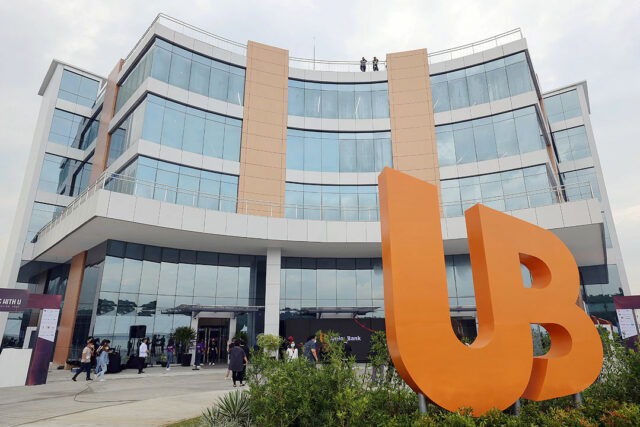(Part 3)
The late Dr. Rolando “Rolly” Dy always started with a macro view of the entire agricultural sector as he related it to comprehensive economic development and poverty eradication. He, however, was at his best in descending to the micro level of agribusiness which he always viewed as a whole value chain from farming to post-harvest to logistics, manufacturing and processing, retailing and all the way to the final consumers of food and beverage products. That is why he was a favorite consultant of some of the largest Philippine agribusiness firms like San Miguel Corp., Del Monte, Monde Nissin, Nestlé, Century Pacific, etc.
He would usually start with some strategic directions at the macro level, such as: “For agriculture to be able to contribute to inclusive growth, three pillars or job creation streams must be pursued: farm productivity, farm diversification, and agri-manufacturing. An overall requirement is that of market-driven competitiveness of the entire sector. The private sector must take the lead and the public sector must be there only to give the necessary support of the physical and legal infrastructure.”
His insistence on the three pillars remind me of what former Secretary of Agriculture William Dar presented to President Ferdinand Marcos, Jr. as his Transition Report in which the former Secretary, who always consulted with Rolly, specifically referred to the three strategic directions of land consolidation (to reach economies of scale for productivity increase), product diversification (veering away from the obsession with rice), and industrialization (value adding through processing raw materials instead of just exporting them). The only strategy that was added in the Transition Report was “Digitalization” which only recently has become an imperative in any attempt to improve the productivity of any sector, whether agriculture, industry, or services.
After specifying the strategic directions at the macro level, Rolly immediately plunged into the microeconomics (or industry level) of agribusiness. In his Magisterial Lecture, he made a very useful comparison of the productivity levels in very specific crops among the ASEAN countries. He presented data demonstrating that the Philippines lags in farm productivity metrics in the major crops common to ASEAN economies: in rice, corn, coconut, coffee, and rubber. The Philippines only excelled in banana and pineapple, two plantation crops that accounted for less than 1.5% of the total farmland of about 10 million hectares. The crop with the largest area, coconut, accounted for 3.5 million hectares with productivity levels of only 25% of the potential, considering the other coconut producers in Asia such as Indonesia and India. According to the Philippine Coconut Authority (PCA), barely one million hectares have some form of intercropping. The crop mainstay, because of poor clones, senility, and limited fertilization, generates less than one ton of oil per hectare as compared to oil palm at four times that level.
Rolly enumerated the causes of low productivity in Philippine farms. They can be categorized as follows:
• Inputs: limited access to land, inadequate supply of quality seeds and seedlings; high costs of inputs, limited access to credit;
• Production: poor farm management, lack of access to advanced technology, no economies of scale because of farm fragmentation;
• Market: poor access to market, lack of price and market information, lack of information on returns on alternative crops;
• Infrastructure: inadequate and poor quality of farm-to-market roads, high cost of power;
• Pests and Diseases;
• Natural calamities;
• Lack of long-term capital; and,
• Misguided policies of Government, both at the national and local levels.
In contrast with what was happening in the Philippines, in which agriculture suffered from both benign neglect and erroneous policies, the rapid productivity gains in many parts of Asia were fueled by a veritable Green Revolution. This Revolution led to increased producers’ incomes, higher laborers’ wages, and lowered prices of food.
In addition, new livelihood opportunities were generated when success in agriculture provided the basis for economic diversification. Links between agriculture and poverty reduction are forged through four transmission mechanisms: a.) direct and relatively immediate impact of improved agricultural performance on rural incomes; b.) impact of cheaper food for both the urban and rural poor; c.) agriculture’s contribution to growth and the generation of economic opportunity in the non-farm sector; and, d.) agriculture’s fundamental role in stimulating and sustaining economic transition, as countries (and poor people’s livelihoods) shift away from being primarily agricultural towards a broader base of manufacturing and services.
Increasing agricultural productivity remains the single most important determinant of economic growth and poverty reduction in countries with the necessary land endowments such as Indonesia, Thailand, Vietnam, Malaysia, and the Philippines. In fact, the success stories of Thailand and Vietnam in transitioning from low to high-middle income economies in the last 20 years mirrors the process described above.
In advocating for product diversification, Rolly presented clear evidence of lack of diversification as one source of the underdevelopment of the Philippine agricultural sector. Some 80% of all the farmlands are planted to just three crops: coconut, rice, and corn. Most are producing below potential. At the same time, there are other commodities such as tree crops (e.g., coffee, rubber, cacao, and palm oil) and fruits which can be intercropped in coconut areas. Some of them can be planted as mono crops such as oil palm and rubber. There can also be mono tree crops that can be planted in large corporate farms like mangoes, avocado, and durian, following the very successful experiences in banana and pineapple plantations in Mindanao.
The dismal record in product diversification is reflected in the low agricultural exports as compared to its ASEAN peers. The Philippines was the only one with a negative trade balance in agri-food trade. In 2010, total agri-food exports of the Philippines were $4 billion compared to the $13 billion to $33 billion of Vietnam, Malaysia, Thailand, and Indonesia. All its neighboring ASEAN countries had positive trade balances in agricultural trade while the Philippines posted a negative trade balance of -$2.7 billion.
Rolly did not spare details in lamenting the failure of the Philippines in diversifying its food exports. He cited the fact that the country’s agri-food export intensity, as measured by value per physical area of land, was very low. It was less than half of Indonesia’s, one-sixth of Thailand’s, and one-tenth of Malaysia’s. The Philippines had only three agricultural exports with earnings of more than $250 million a year as compared to Malaysia and Vietnam that had nine each, Indonesia’s 11, and Thailand’s 19. For billion-dollar exports, the Philippines had only one (coconut oil) as compared to Malaysia’s four; Vietnam’s five; and Thailand’s seven. These comparative figures have changed very little up to this day.
It is to be hoped that the new Secretary of Agriculture will assign the highest priority to the diversification of crops in the Philippines. This diversification is very closely tied up with the indispensable step of farm consolidation to attain economies scale in the growing of such crops as cacao, coffee, palm oil, mangoes, avocado, durian, and other products which our ASEAN neighbors have succeeded in developing for exports.
(To be continued.)
Read Parts 1 and 2 here: An intellectual giant on Philippine agribusiness (https://tinyurl.com/ynvauzqn) and An intellectual giant on Philippine agribusiness: Reducing poverty (https://tinyurl.com/yp2mfv3)
Bernardo M. Villegas has a Ph.D. in Economics from Harvard, is professor emeritus at the University of Asia and the Pacific, and a visiting professor at the IESE Business School in Barcelona, Spain. He was a member of the 1986 Constitutional Commission.
bernardo.villegas@uap.asia












